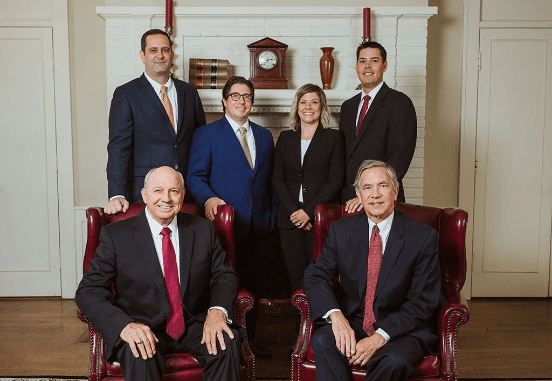 Car accidents not only result in serious injuries, they can also exacerbate pre-existing injuries or ailments the victim had prior to the crash. When pursuing a personal injury claim, it is vital to disclose any pre-existing conditions. While an insurance company will try its best to use a pre-existing injury as a way to deny your claim or pay you less than what it’s worth; you can still receive compensation if the crash worsened a pre-existing condition.
Car accidents not only result in serious injuries, they can also exacerbate pre-existing injuries or ailments the victim had prior to the crash. When pursuing a personal injury claim, it is vital to disclose any pre-existing conditions. While an insurance company will try its best to use a pre-existing injury as a way to deny your claim or pay you less than what it’s worth; you can still receive compensation if the crash worsened a pre-existing condition.
What Is a Pre-Existing Condition?
A pre-existing injury or condition can include different medical diagnoses. For legal purposes, a pre-existing injury is any type of injury or medical condition that existed prior to the individual being involved and injured in a car accident. These injuries can include those sustained in a previous car accident or other damaging incident. They can also include congenital defects, including heart conditions, brain injuries or birth defects. Pre-existing injuries can also include those that are still healing or did not heal properly, and any medical conditions that can be exacerbated by stress, including seizures, panic attacks, and asthma.
Insurance Claims and Defenses
Since Florida operates under no-fault auto insurance laws, the injured person would first need to file a claim under his or her own personal injury protection (PIP) policy for medical injuries, as well as loss of income. Insurance companies will attempt to do whatever is possible to mitigate or reduce the amount of money they will pay out to the injured individual. Many insurance companies will attempt to reject new claims when a pre-existing injury or condition is involved by arguing that the victim’s injuries are not related to this claim and should not be considered “damages” in the matter. Insurance companies will also attempt to reduce the amount awarded to the plaintiff by saying that the claim should be reduced by how much the pre-existing condition factored into the new injury.
Insurance companies will try to get the injured person to sign a medical authorization, giving them unrestricted access to the injured person’s medical history and records. We strongly recommend that a personal injury attorney be consulted before any waiver or release is signed for purposes of privacy, as well as to avoid the insurance company digging into records that have absolutely no bearing on the claim submitted.
Eggshell Plaintiff Doctrine
Regardless of what the insurance company may attempt to claim, Florida’s personal injury laws provide protection for injured parties who have pre-existing conditions. Florida is one of a handful of states that follow the “eggshell plaintiff doctrine.” The eggshell doctrine operates under the theory that the victim is taken as he or she is. Therefore, under this doctrine, it does not matter what condition the victim was in at the time of the accident. He or she should receive compensation for injuries from a car accident, even if those injuries were heightened or made worse by pre-existing conditions. The eggshell plaintiff doctrine applies to physical injuries that existed prior to the crash, as well as mental ones, including PTSD.
Under this theory, essentially, even if the injured person’s skull is as fragile as an eggshell, due to pre-existing injuries, he or she should still receive compensation for injuries sustained in the crash. To be compensated under this doctrine, two important factors must exist:
- The injured party’s pre-existing condition must be considered stable and under control; and
- Before the accident occurred, there was no reason to believe that the injured victim’s condition was going to worsen.
If these two factors can be proven, the injured person will be allowed to receive full compensation for his or her injuries, regardless of the pre-existing condition. This fact does not necessarily mean the insurance company will not try to show that the person was also negligent in causing the accident and reduce the claim under the doctrine of comparative negligence.
Civil Jury Instruction on Aggravation of a Preexisting Condition
Florida Statute 501.5(a), “Aggravation or activation of disease or defect” states, “If you find that the (defendant(s)) caused a bodily injury, and that the injury resulted in [an aggravation of an existing disease or physical defect] [or] [activation of a latent disease or physical defect], you should attempt to decide what portion of (claimant’s) condition resulted from the [aggravation] [or] [activation]. If you can make that determination, then you should award only those damages resulting from the [aggravation] [or] [activation]. However, if you cannot make that determination, or if it cannot be said that the condition would have existed apart from the injury, then you should award damages for the entire condition suffered by (claimant).”
Essentially this means, at a trial in an injury case where there is a prior similar injury, the trial judge is supposed to instruct the jury to cut out the part of the condition that preexisted the injury caused by the negligent defendant. But if the jury cannot determine what part should be cut, the judge is supposed to instruct the jury that they must include money in the verdict for the entire condition.
These types of cases tend to be complex in nature and require the help of a medical expert to prove damages caused by the accident and differentiate them from a previous injury. The medical professional must be able to document the aggravation and compare it to the condition that pre-existed the accident, treat the issue and document the plaintiff’s progress through diagnostic tests and physical therapy.
It is important to seek immediate medical treatment and speak with an experienced Orlando car accident attorney as soon as possible after the crash, particularly if you have suffered serious injury as a result. Many people believe you should call the insurance company first before speaking with an attorney, and while it is important to report the accident to your insurance company- insurance companies do not have a duty to act in your best interest (even your own insurance company). Only an attorney must act in your best interest. By contacting an attorney, you can make sure you get compensated fairly for your injuries and damage sustained to your vehicle.
Wooten, Kimbrough, Damaso, and Dennis, P.A. is based in Orlando, FL and was founded in 1966. Our team is comprised of award-winning trial lawyers who have obtained record setting verdicts for the injured and their families in Central Florida and around the world. We provide free consultations to all families suffering from wrongful deaths or injuries caused by car accidents or catastrophic injuries. If you are not sure where to turn following a serious car accident, call us today at (407) 843-7060.
Virtual sign-ups available. To learn more, visit https://www.whkpa.com.

Legally Written and Reviewed by a Managing Partner
Wooten, Kimbrough, Damaso, and Dennis, P.A.
Our content is written and reviewed by our founding attorneys Butch Wooten, Orman Kimbrough, Mike Damaso, and Tom Dennis. Helping the injured since 1966, they’ve successfully handled thousands of personal injury cases across Florida. Whether you’re a Florida resident or an out-of-state visitor injured in Florida, we’re dedicated to providing clear and reliable information to help you navigate your legal options confidently.




